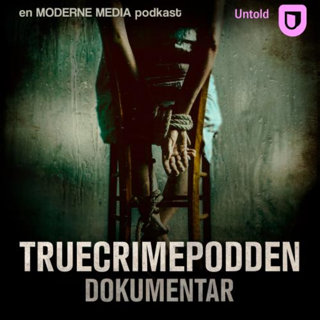
Cartel Surveillance: FBI Informants Targeted in Mexico City.
Cartel Surveillance: FBI Informants Targeted in Mexico City2 sourcesThe sources explore two distinct facets of digital activity: cybersecurity and its misuse. One source focuses on "Spydirbyte," a self-proclaimed hacker whose biography details a complex past of trauma, black-hat activities, and later, politically motivated activism, often associated with Anonymous. This narrative, heavily based on Spydirbyte's own accounts, raises questions about the subjective nature of truth in digital shadows. The second source reveals a critical incident involving the Sinaloa Cartel, which allegedly used hacked Mexico City surveillance cameras and an FBI official's compromised data to track and kill informants. This event underscores the dangerous implications of ubiquitous surveillance technology and its potential for exploitation by criminal organizations, sparking debate about privacy, government accountability, and the intersection of technology with organized crime.
22 Aug 45min

Chasing Edward Snowden: A Whistleblower's Hunt.
The provided text chronicles the global manhunt for Edward Snowden after he leaked classified National Security Agency (NSA) documents. It details the risks Snowden took to expose mass surveillance programs, highlighting his initial meeting with journalists in Hong Kong and the immediate international reaction. The narrative also captures the intense efforts by the US government to apprehend him, including diplomatic pressures and the cancellation of his passport, while simultaneously showing the support offered by WikiLeaks and the public sympathy he garnered in various countries. Ultimately, the text describes Snowden's eventual asylum in Russia after a series of rejections from European nations and a dramatic incident involving the grounding of a Bolivian presidential jet, all of which had significant implications for international relations and the debate surrounding whistleblower protection.
22 Aug 12min

The Symbiotic State: Mexico's Political-Criminal Networks.
This report examines the intricate and systemic corruption within Mexico's political landscape, highlighting the concept of "narcopolíticos" — individuals who protect or collaborate with organized crime. It analyzes how criminal enterprises have deeply integrated with state functions, ranging from drug trafficking and human exploitation to arms dealing and extortion. Through detailed case studies of high-ranking officials like Genaro García Luna and Tomás Yarrington, the text reveals the mechanisms of this collusion at both federal and state levels, including the use of state security forces for cartel benefit and sophisticated money laundering operations. The report underscores the crucial role of investigative journalism and transnational justice in exposing and prosecuting these pervasive issues, particularly when domestic accountability is lacking. Ultimately, it argues that this corruption transcends political parties, representing a fundamental flaw in the Mexican state's structure rather than isolated incidents.
22 Aug 20min

From Corridos to #CartelTikTok: The Rise of the Narco-Influencer in Mexico.
The source discusses the pervasive influence of drug cartels in Mexico, specifically focusing on the phenomenon of "narcoinfluencers" who use social media to promote cartels by justifying their actions and denigrating rivals. It details the murder of an influencer, Camilo Ochoa, highlighting the use of hackers to locate targets and the brutal methods employed by sicarios. The conversation also exposes widespread corruption within the Mexican political system, with a website, narcopoliticos.com, cited as documenting connections between politicians, bureaucrats, and various cartels, including the Sinaloa and Jalisco New Generation cartels. The source emphasizes that no political party or state is immune to cartel infiltration, describing Mexico as a "narcostate" where violence is rampant, and government efforts to combat it are often ineffective or even complicit. The speakers convey a deep concern for press freedom and the safety of journalists in Mexico, asserting that the country's severe corruption and cartel control lead to a near-total impunity for violence.@HackersOIHEC @narcopoliticos_
22 Aug 27min

Cartel's Underground Cellular Networks: Criminal Innovation.
The provided source discusses allegations that Mexican drug cartels are developing their own sophisticated cellular networks, moving beyond simple encrypted apps or burner phones. These networks are purportedly built using modified commercial hardware, open-source software, and advanced, custom encryption methods like "geolock" which reportedly uses environmental factors for key generation. The motivation for this technological leap is attributed to past surveillance vulnerabilities, particularly a 2009 arrest. While the feasibility of basic private networks is acknowledged, the more advanced technical claims regarding deep hardware modifications and unique cryptographic systems require further independent verification, suggesting a potential technological arms race between criminal organizations and authorities.
22 Aug 7min

Cybermidnight Club Podcast Analytics Report.
The provided sources document the extraordinary journey of Alberto Daniel Hill, a Uruguayan cybersecurity expert. They detail his wrongful imprisonment in 2017 for a computer-related crime he denies, an ordeal that led to profound personal trauma, including a coma, and the loss of millions in cryptocurrency assets. Following his release, Hill transformed his personal crisis into a global mission for justice and cybersecurity awareness, primarily through his daily podcast, "Cybermidnight Club." This platform, fueled by raw, unscripted conversations from Twitter Spaces, advocates for victims, exposes systemic flaws in legal systems, and leverages Hill's radical transparency and past experiences to build trust and educate. His persistent advocacy has even led to significant reforms within Uruguay's cybersecurity and judicial systems.http://podcast.cybermidnight.club/
21 Aug 42min

Unpacking Government Cyber Failures and Cover-ups.
The sources present an extensive discussion between two individuals, Alberto Hill and JAY, along with other participants, concerning a significant cybersecurity breach and data exploitation within the U.S. federal government, specifically targeting the Office of Personnel Management (OPM). Shay, a cybersecurity expert with 29 years of experience, details how a group, referred to as Doge, allegedly orchestrated a system that allowed them to obscure sender origins in federal emails, verify user identities while administrators remained anonymous, and collect vast amounts of sensitive data from various government agencies, including the Treasury and IRS. This information, placed into a "data lake," was purportedly used to identify and remove federal employees based on political and ideological affiliations, disrupt investigations into Elon Musk's companies, and erode public trust in government. Alberto Hill draws parallels to similar issues in Uruguayan politics, highlighting concerns about compromised government systems, passport issues, and the silencing of whistleblowers by media and authorities. The conversation emphasizes the frustration with lack of accountability and the challenges of gaining media attention for such critical issues.• #InsecureCloudMigration• #OpSecFailure• #AIinGovernment• #GitHubExposure• #InsiderThreat• #AccountabilitySinkholeLegal & Societal Implications:• #PrivacyAct1974• #GovernmentMalfeasance• #AgencyDismantling• #CivilServiceErosion• #Whistleblower• #TransparencyNow• #ProtectOurDatahttps://x.com/ADanielHill
21 Aug 29min

The Evolving Landscape of Hacking and Cybersecurity Podcasts
These sources offer an extensive overview of the cybersecurity podcast landscape, categorizing and profiling numerous shows. They highlight the evolution of cybersecurity content from niche technical discussions to highly produced, narrative-driven true crime stories and even shows focused on the human element of security. The texts discuss how podcasts serve as vital hubs for community building and information sharing, bridging the gap between traditional hacker culture and corporate cybersecurity. One source provides a detailed analysis of the "Cybermidnight Club" podcast, emphasizing its host's personal history, its unique live, unscripted format, and its role as a platform for digital justice and activism. Ultimately, the documents serve as a curated guide for listeners to navigate the diverse and growing world of cyber-auditory content.
21 Aug 7min






















